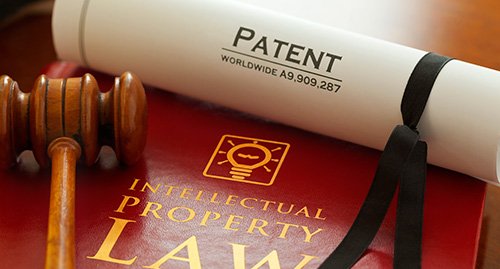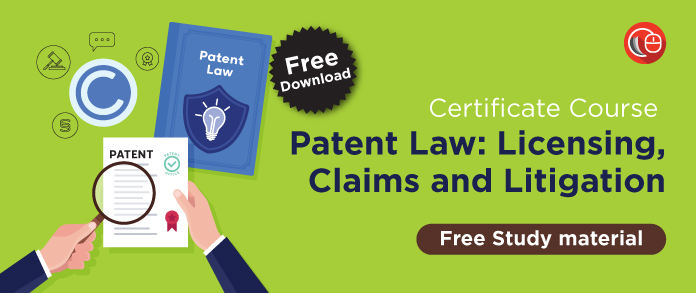This article has been written by Tejas_Agarrwal, pursuing the Certificate Course in Intellectual Property Law and Prosecution from LawSikho.
Table of Contents
Introduction
“The way to get started is to quit talking and begin doing.”
– Walt Disney
Before delving deeper into the concept of Compulsory Licensing (‘CL’) for Patent, let us first understand what is a Patent? Patent is a privilege/right granted to the inventor or creator to enjoy the fruit of his invention to the exclusion of everyone else for a limited time period which is generally 20 years from filing date. So, it can be said that patent rewards the first inventor or creator and restricts the imitator.
What is Compulsory Licensing?
As the name suggests, CL is an authorization granted to a third party by the state on reasonable terms for using a patented product or process without the patentee’s consent. It is an involuntary contract between a willing buyer and an unwilling seller imposed and enforced by the State.
Compulsory Licensing in India
In India, matters related to Patents are governed by The Patents Act, 1970 (‘the Act’) (see here). India joined Trade-Related Aspects of Intellectual Property Rights, 1994 (TRIPS) in the year 1995 and the deadline for complying was 1st January 2005. The Act was made amended in the year 1999, 2002 & finally in 2005 to make it fully TRIPS compliant. The provision regarding CL is contained in Chapter XVI of the Act comprising Ss. 82 to 94 and in Chapter XIII of The Patents Rules, 2003. The chapter containing CL was replaced with a completely new one by Patents (Amendment) Act, 2002. However, CL can only be granted after the expiry of 3 years from the date of grant of a patent to an applicant.
The two most important treaties related to Intellectual Property are the Paris Convention for the Protection of Industrial Property, 1883 and Trade-Related Aspects of Intellectual Property Rights, 1994.
There are various grounds for granting CL to an applicant under the Act. These can be categorised as follows:
Non-functional and deficient supply
One of the requirements of a patent is to have an industrial application in the domestic market [S.83 (a) r/w S.2 (1)(j) of the Act]. But if the patent is not worked in India on a commercial scale within a reasonable time, it becomes a ground for granting CL to a 3rd party so that the public can be benefitted from the invention to the fullest [S.84(1)(a) r/w S.84(7)(d) & (e) of the Act]. This ground finds its mention in Article 31 (read here) of the TRIPS Agreement to which India is a signatory.
Refusal to license
In principle, a Patent owner has the right to give or not to give license to a third party. This principle has an exception in S.84(1)(a) r/w S.84(7)(a), (b), & (c) of the Act, under which if the conditions imposed by the patentee on the grant of a license to a 3rd party are not reasonable leading to commercial loss, non-availability of the product, hindrance in export, non-usage of dependant products, exclusive grant back, etc., it shall be interpreted as non-satisfaction of reasonable requirements of public and the controller can be approached to grant a CL.
Public Interest
Patents are granted not merely to enjoy a monopoly over the invention but for the promotion of innovation in the technological field so that both producer and user of technological knowledge can benefit (S.83 of the Act). However, if the patentee sits on his invention for a reasonably long time, it frustrates the basic purpose and can be considered as against the public interest. Due to this, the public interest is a ground for granting CL to a 3rd party if the patented invention is not made available to the public at a reasonably affordable price or not worked in the territory of India [S.84(1)(b) & (c) of the Act].
Exclusive grant back and coercive package licensing
Exclusive Grant back is a clause in the license agreement by a patentee (licensor) under which if the licensee makes an improvement in the licensed technology then he is allowed to commercialize such improved product without applying for another patent but the licensor has the exclusive right to use or sublicense improvement while the licensee retains the non-exclusive right to practice the improvement. These exclusive grant backs are sometimes considered as anti-competitive.
Similarly, package licensing or patent pooling is used when more than one patent will be required to commercialize an invention. Package licensing can become coercive when the patents in the package are licensed forcefully and unnecessarily.
Under the Indian Patent law, the above practices are considered to be against the reasonable requirements of the public as provided in S.84(1)(a) r/w S.84(7)(c) of the Act.
Import prevention
A peculiar ground for granting a CL is when the working of a patented invention is prevented due to restrictions on its import from abroad by the patentee or persons related to it. This ground allows the government of importing countries to grant CL on behalf of foreign-owned patents which are not being imported to the reasonable requirements of the public. In India, this ground is enshrined in S.84(7)(e) of the Act.
Licensing of dependent patents
Sometimes a situation arises where two or more patents are registered to the same patentee and the CL granted to a 3rd party on any one of patents cannot be worked without infringing the other patents. In that case, the controller can grant the 3rd party license to also use those other patents if they involve important technological advancement of considerable economic significance [S.88(3)].
Anti-competitive practices
A patent is an exception to the competitive practice adopted by a nation to provide a level playing field to different players engaged in the business. However, this monopolization is temporary in nature and cannot be practised through unfair or unlawful means such as excessive broad patents, amassing patent portfolios and later engaging in patent trolling are some acts which are held to be anti-competitive. In India, a CL can be granted to export a patented product pursuant to a judicial or administrative remedy for such anti-competitive practices [S.90 (1)(ix) of the Act].
Government Use
In India, the government is authorised to use the patented invention for its own use by following certain procedures laid down in Chapter XVII of the Act. A CL can also be granted to 3rd parties in case of national emergency or extreme emergency or public non-commercial use by the central government through a notification in the Official Gazette to that effect [S.92 of the Act].
CL for Pharmaceutical products
In the original TRIPS Agreement, A.27 prohibited discrimination in the exercise of patent rights on the basis of the field of technology. However, the Agreement as amended, through the Protocol of 6th December 2005 which came into force on 23rd January 2017, by inserting a new Article 31. Under this new Article, WTO members were allowed to grant special CL exclusively for the production and export of affordable generic pharmaceutical products to other member states who are unable to domestically produce the needed medicines in sufficient quantities for their patients.
In India, a similar provision was inserted in the Act by way of an Amendment in the year 2005 through S.92A, which authorises the controller to grant a special CL for above purposes to the eligible 3rd party for the sake of public health.
Important case laws
Despite having an elaborate CL procedure, it is pertinent to note that in India only 1 CL has been granted till date (2020) and also the first CL ever granted in the world post-TRIPS Agreement. This one and only CL were granted to a Hyderabad based generic drug manufacturing company Natco Pharma (Applicant) for using the patented cancer drug ‘Sorafenib Tosylate’ (compound of Carboxyaryl Substituted Diphenyl Ureas) (invented drug) sold under the brand name ‘Nexavar’ which was patented by Bayer Corporation (Patentee). The patent for the invented drug was granted in India on 03-03-2008 to the patentee. After applying for the CL under S.84, the controller in the case of Natco Pharma Ltd. and. Bayer Corporation, Order dated 9th March 2012, granted CL to Applicant on certain terms which included 6% royalty to Patentee and cost of 120 tablets to not exceed Rs. 8880 for 1 month’s treatment.
There are few other cases where CL claims were made by 3rd Party but could not be granted. Second CL claim was made in the case of Emcure pharmaceutical vs. Roche under S.92 of the Act to use Roche’s anti-cancer drug ‘Trastuzumab’ sold under the brand name ‘Herceptin’. However, the Department of Industrial Policy and Promotion (DIPP) refused the Ministry of Health in proceeding with the application under National emergency.
Third CL claim was made in the case of BDR Pharma and Bristol Myres Squibb (BMS) in which BDR Pharma filed S. 84 application in March 2013 in relation to the anti-cancer drug ‘Dastanib’ patented by BMS (Patentee). However, the controller rejected the application on the ground that a prima facie case was not made by BDR pharma in order to grant CL because of failure to make efforts to get a voluntary license from the Patentee on reasonable terms and conditions.
Fourth and more recent CL claim was made in the case of Lee Pharma vs. Astra Zaneca, in which Lee Pharma filed an application on 29th June, 2015 for granting CL against the patented drug ‘Saxagliptin’ used in the treatment of Diabetes Mellitus. ‘Saxagliptin’ is a drug patented by Bristol Myres Squibb (BMS) which was assigned to AstraZeneca in India. Lee Pharma contended that AstraZeneca was importing the drug at less than a rupee but charged as much as Rs.45 for each tablet, leading to the increased cost of therapy beyond the reach of most Indian patients. Lee pharma also contended that AstraZeneka has not made sufficient efforts to manufacture the drug in India which is in contravention to the existing patent laws. However, the Controller rejected these arguments and held that a prima facie case has not been made by Lee pharma for getting an order under S.84 of the Act.
To know more about Patents please visit:
Conclusion
As discussed above, a CL is an involuntary contract which jeopardizes the monopoly rights of the Patentee and therefore should be granted only in rarest of the rare situations like a public health emergency, natural disaster, war, etc. A patent takes years of R&D involving huge cost & time and numerous approvals, then granting a CL to 3rd party leads to discouragement among innovators as they will be in constant fear of getting their patents forcefully licensed to other persons without commercially exploiting them on the ground that they are not made affordable to the public.
It is imperative of the government to search for an alternative model for balancing the rights of the patentee and public interest predominantly in the field of healthcare. One such way of achieving this would be to study the essential products which need intervention by the government and using CL as a bargaining chip to get the innovators to the negotiating table instead of private companies. A similar approach is used in India by way of Drug (Price Control) Order 2013 (read here) which is issued by the Central Government under Essential Commodities Act, 1955 to control the price of essential pharmaceutical products without taking away the monopolistic rights of the patentee. This model can be made more effective by consulting various stakeholders of different fields and releasing a similar list for products of such fields more frequently to combat the public issues expeditiously.
References
- The Patents Act, 1970 (39 of 1970). Available at – https://ipindia.gov.in/writereaddata/Portal/ev/sections-index.html
- The Patents Rules, 2003. Available at – https://ipindia.gov.in/writereaddata/Portal/ev/rules-index.html
- Trade-Related Aspects of Intellectual Property Rights (Trips) – Available at –https://www.wto.org/english/docs_e/legal_e/31bis_trips_01_e.htm
- Essential Commodities Act, 1955 (10 of 1955). Available at – http://legislative.gov.in/sites/default/files/A1955-10.pdf
Students of Lawsikho courses regularly produce writing assignments and work on practical exercises as a part of their coursework and develop themselves in real-life practical skill.
LawSikho has created a telegram group for exchanging legal knowledge, referrals and various opportunities. You can click on this link and join:
Follow us on Instagram and subscribe to our YouTube channel for more amazing legal content.
 Serato DJ Crack 2025Serato DJ PRO Crack
Serato DJ Crack 2025Serato DJ PRO Crack









 Allow notifications
Allow notifications


